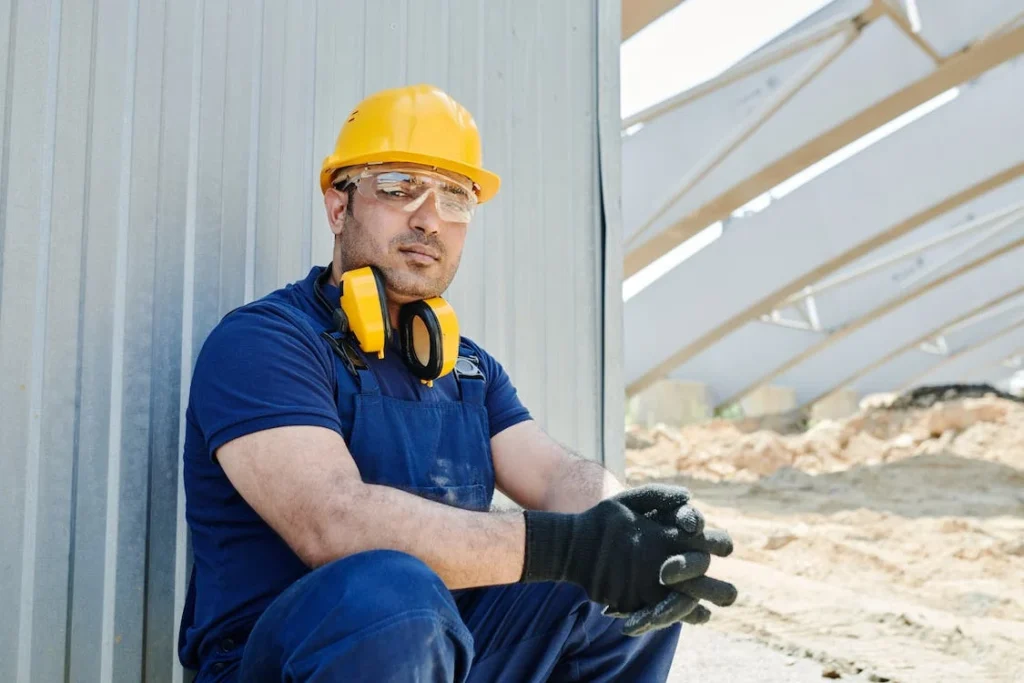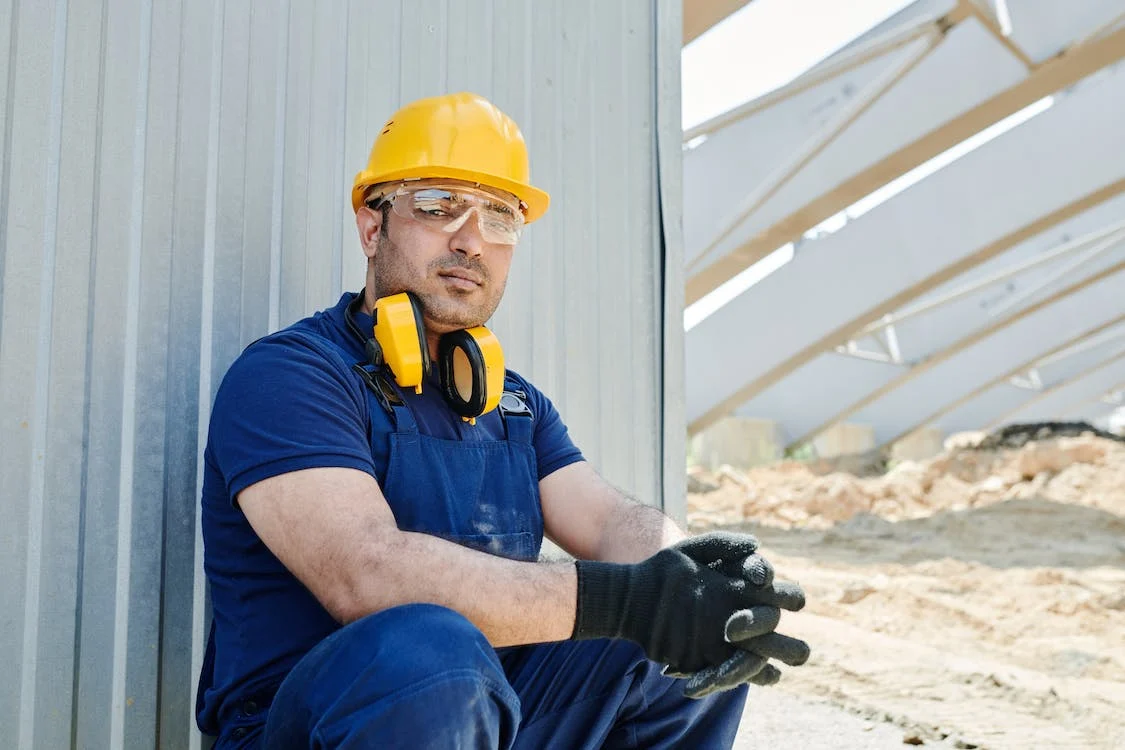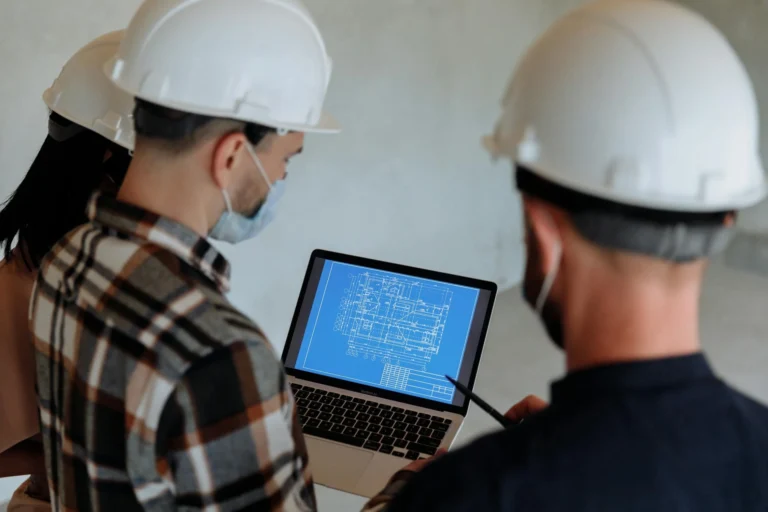The construction industry is the backbone of modern infrastructure, responsible for building the towering skyscrapers, intricate bridges, and the very homes we live in. Yet, behind the impressive facades and intricate designs lie the men and women who toil tirelessly to bring these structures to life. The physical and mental well-being of these construction workers is of paramount importance, yet it is an aspect of the industry that has often been overlooked. In this blog post, we will delve into the critical issue of worker well-being in construction, exploring the challenges they face, the initiatives aimed at improving their mental and physical health, and why prioritising the welfare of these workers is not only ethical but also essential for the industry’s sustainability and success.

The Challenges Faced by Construction Workers
Physical Demands and Risks
Construction work is unquestionably one of the most physically demanding occupations. It involves a myriad of tasks that demand considerable physical exertion and endurance. Construction workers routinely find themselves grappling with the formidable challenge of lifting and moving heavy materials, often manoeuvring under demanding conditions. Whether it’s hoisting steel beams into place, transporting large concrete slabs, or handling unwieldy tools and equipment, the physical demands can be relentless.
Moreover, the work environment itself can be perilous. Many construction tasks require workers to operate at great heights, exposing them to the inherent dangers of falls and precarious situations. The operation of heavy machinery, while essential for productivity, introduces an additional layer of risk. The slightest lapse in concentration or an unforeseen mechanical issue can lead to catastrophic accidents.
The physical toll that construction work exacts on workers is undeniable, but the consequences extend beyond immediate safety concerns. The prolonged exposure to such demanding conditions can lead to long-term health issues. Workers may experience chronic pain, musculoskeletal disorders, and other health conditions stemming from the wear and tear on their bodies over time.
In essence, construction workers shoulder the weight of their physically demanding profession daily, facing not only the risk of immediate accidents and injuries but also the potential for long-lasting health challenges. It is imperative that we acknowledge and address these physical challenges to ensure the well-being and longevity of those who build the world around us.
Long Hours and Irregular Schedules
Construction projects frequently require workers to put in long hours, including overtime and weekend shifts. Irregular schedules can disrupt their sleep patterns and make it challenging to maintain a work-life balance.
Mental Stress
Construction workers find themselves dealing with consistently high levels of stress and pressure due to the demanding nature of their profession. These challenges come in various forms, adding layers of complexity to their work life. Tight deadlines, which are often non-negotiable in the construction industry, can create intense time pressures, leaving workers with limited breathing room to complete their tasks efficiently and safely.
The weight of responsibility is substantial, as workers strive to meet strict quality standards and adhere to rigorous safety protocols. Demanding supervisors add an additional layer of pressure, as they oversee and coordinate various aspects of the construction project. While supervision is essential for ensuring work quality and safety, it can sometimes intensify stress levels when workers perceive it as overly critical or micromanaging.
The cumulative impact of these factors on construction workers’ mental health cannot be underestimated. The daily challenges they face, coupled with the need to consistently perform at their best, can lead to stress, anxiety, and even burnout. The mental toll of navigating these pressures highlights the importance of addressing and supporting their mental well-being, alongside their physical health, in the construction industry.
Job Insecurity
Construction work is often project-based, leading to job insecurity. Workers may experience layoffs between projects, making it challenging to plan for the future or access essential benefits.
Limited Access to Healthcare
Many construction workers, particularly those in temporary or informal employment, have limited access to healthcare. This can result in untreated injuries and illnesses, exacerbating their physical and mental health problems.
The Impact of Worker Well-being on the Industry
The well-being of construction workers is not only a matter of human rights and ethics but also has tangible effects on the construction industry itself:
Productivity and Efficiency
The benefits of prioritising the physical and mental well-being of workers in the construction industry extend far beyond their individual health and happiness. When construction workers are both physically and mentally well, it sets the stage for a cascade of positive outcomes that resonate throughout the entire industry.
Productivity and efficiency are among the most significant beneficiaries of worker well-being. When workers are in good physical shape, they are more capable of sustaining the rigorous demands of the job. They have the strength, stamina, and agility required to perform tasks efficiently, contributing to overall project progress.
When workers are mentally well, they exhibit higher levels of focus, concentration, and problem-solving ability. This mental acuity translates into a reduced likelihood of making mistakes on the job, leading to higher-quality work and fewer rework efforts. The construction industry is notorious for the costliness of errors, and a mentally sharp workforce can help mitigate these financial and timeline setbacks.
Retention and Attraction of Talent
A focus on worker well-being can improve retention rates and attract new talent to the industry. A positive reputation for caring about employees can make construction companies more attractive to skilled workers.
Reduced Costs
Investing in worker health and safety can lead to reduced costs associated with accidents, injuries, and medical expenses. It can also lower the turnover rate, reducing the costs of hiring and training new workers.
Improved Reputation
Construction companies that prioritise worker well-being develop a positive reputation, which can lead to more contracts and partnerships. Clients and investors often prefer to work with companies that have a strong commitment to ethics and sustainability.
Initiatives and Strategies for Worker Well-being
Recognizing the critical importance of worker well-being, numerous initiatives and strategies have been developed to address the challenges faced by construction workers and improve their overall health and happiness:
Health and Safety Regulations
Stringent health and safety regulations are in place in many countries to protect construction workers. These regulations include guidelines for personal protective equipment, machinery operation, and hazard identification.
Training and Education
The importance of providing comprehensive training and education programs to construction workers cannot be overstated. In the dynamic and often hazardous environment of construction sites, knowledge is not just power; it’s a lifeline. These programs play a pivotal role in safeguarding the well-being of workers and preventing accidents and injuries.
To start, robust training initiatives offer an opportunity for workers to become well-versed in a wide array of safety procedures. This includes not only general safety protocols but also specialised procedures that pertain to specific job tasks and potential hazards. By instilling a deep understanding of these procedures, workers are better equipped to identify potential risks and respond effectively to ensure their safety and that of their colleagues.
Additionally, training programs delve into the proper use of equipment, which is central to construction safety. Construction sites are teeming with various machinery and tools, each with its unique set of safety guidelines and operational intricacies. Thorough training ensures that workers can operate these tools and equipment confidently and competently, minimising the risk of accidents resulting from improper usage.
Beyond safety procedures and equipment operation, comprehensive training and education programs also emphasise situational awareness and hazard recognition. Workers learn to assess their surroundings critically, identifying potential dangers and taking preemptive measures to mitigate risks. This heightened awareness is an invaluable asset on construction sites, where conditions can change rapidly.
These programs often extend to emergency response training, equipping workers with the knowledge and skills needed to react swiftly and effectively in the event of accidents or unforeseen crises. This readiness can mean the difference between a minor incident and a catastrophic event.
Mental Health Support
Awareness of mental health issues in the construction industry is growing. Many companies now offer mental health support programs, including access to counsellors and resources for managing stress.
Wellness Programs
Construction companies are increasingly implementing wellness programs that promote physical health. These programs may include fitness facilities, nutritional guidance, and regular health check-ups.
Flexible Work Arrangements
To address the issue of long hours and irregular schedules, some companies are exploring flexible work arrangements. These arrangements can help workers maintain a better work-life balance.
Access to Healthcare
Efforts are being made to improve access to healthcare for construction workers, particularly those in informal employment. This includes initiatives to provide insurance and affordable healthcare options.
Worker Engagement
Engaging workers in decision-making and listening to their concerns can improve their job satisfaction and well-being. Workers should have a voice in matters related to safety and working conditions.
A Healthier and More Sustainable Industry
The construction industry is at a pivotal moment in its history. The well-being of its workers is not just a matter of corporate social responsibility but a critical factor in the industry’s success and sustainability. By prioritising worker health and safety, construction companies can create a work environment that is not only more ethical but also more productive and cost-effective.
The road ahead involves a continued commitment to worker well-being through training, education, mental health support, and access to healthcare. Companies must also promote a culture of well-being that values and respects the physical and mental health of all workers, regardless of their role in the construction process.
In the end, a healthier and more sustainable construction industry is not only good for workers but also for the communities they serve and the clients they work with. It’s a win-win scenario where everyone benefits, and it’s a path that the construction industry must wholeheartedly embrace for a brighter and more prosperous future.
A good construction software makes use of good project management functionality, estimate and financial/accounting tool functionality, job management, scheduling and planning and support functionalities and more. WunderBuild is a construction management software that aims to provide all of these functionalities and more to bring out the best outcomes for a project. Enquire here today, to learn more about Wunderbuild and start your free trial.




